Why visit Bulgaria – here are 17 reasons to travel to Bulgaria. We have covered everything from low costs, accessible transport, friendly locals, and an endless list of places to see.
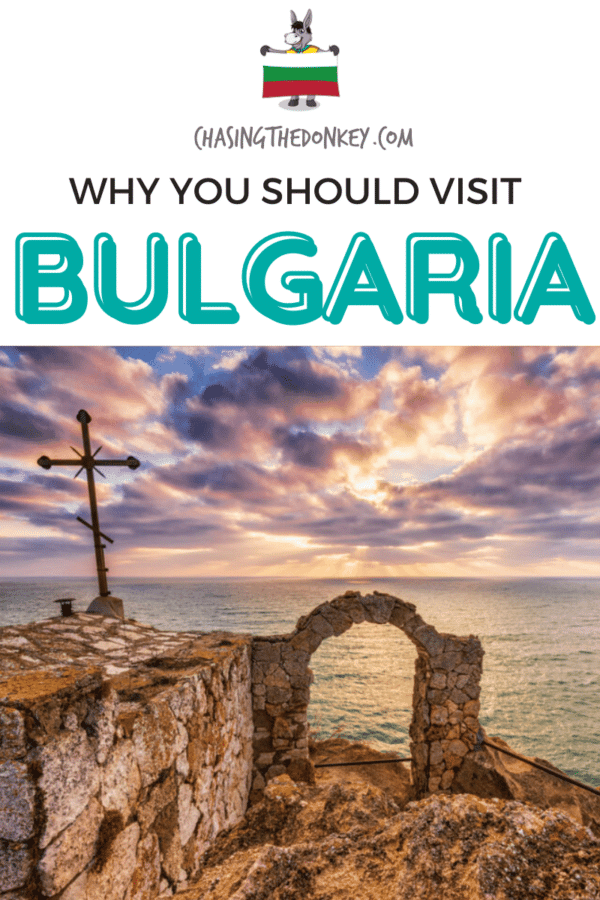
Bulgaria’s culture and history are at the heart of all of the reasons why you should visit Bulgaria. You’ll undoubtedly be in awe of the plethora of places of interest in Bulgaria, whether you’re in the city, the mountains, or the coast, and you will fall in love with Bulgaria as I have.
So, why visit Bulgaria, a unique city in Europe? Let me show you why Bulgaria as a holiday destination is where you need to be headed right now and what Bulgaria is famous for.
Skip Ahead To My Advice Here!
Is Bulgaria Worth Visiting?
Let me tell you, absolutely yes, Bulgaria is worth visiting and should be on your radar! On my last few trips there, taking along my kids and husband, we’ve all thoroughly enjoyed the diverse experiences this hidden European gem offers.
From the stunning Black Sea beaches to the rugged Balkan Mountains, there’s something for every explorer in the family. History buffs will appreciate the ancient ruins, while the variety of delicious Bulgarian cuisine caters to every palate. Cities like Sofia and Plovdiv buzz with culture and architecture. We found it very safe, with a fantastic range of food and activities that kept us all engaged and happy.
Bulgaria’s blend of beautiful landscapes, rich history, and affordability makes it an ideal destination for family travels. Ready for an adventure? Bulgaria awaits with open arms, promising memorable experiences for everyone.
Reasons Why You Should Visit Bulgaria
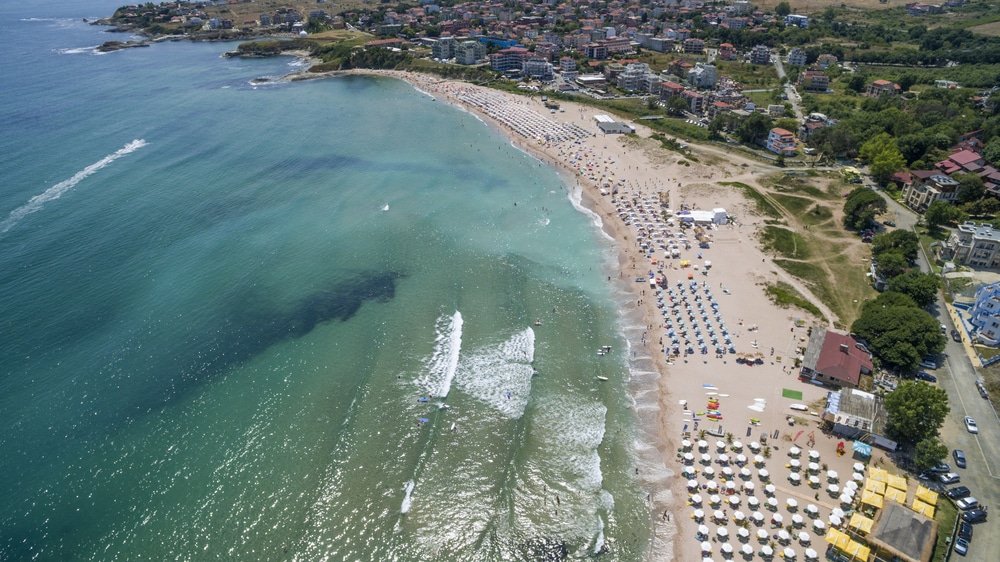
Are you considering a trip to Bulgaria? Here’s why you should. Whether it’s your first visit or you’re returning, Bulgaria is a standout destination. Safe, affordable, and filled with diverse places to explore, from the historic city of Plovdiv to the capital, Sofia, there’s plenty to see and do.
Here is why you will want to visit…
1. Visit Because Bulgaria Is Cheap
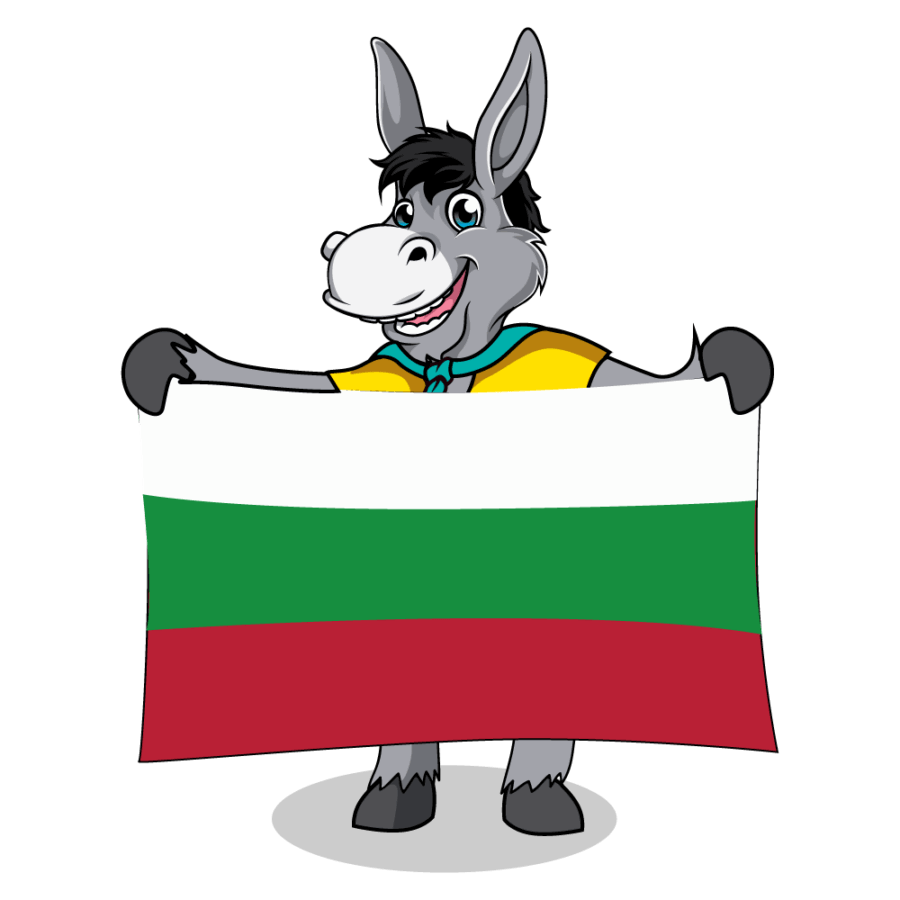
I was unsure what to expect the first time I headed to this European Union country regarding how much things cost in Bulgaria. But I guess thanks to the fact that it’s in Eastern Europe, the prices were much lower than in Croatia, where I live -, and there was a lot of value for money. In fact, I learned that Bulgaria is incredibly cheap and is one of the cheapest places to travel in Europe.
Cost Of Hotels In Bulgaria
Depending on what kind of traveler you are, you can get by on 25-50 euros a day in Bulgaria, even when visiting the top Bulgaria travel highlights. Hotels in the capital, Sofia, in peak season, can still be as low as 30 euros per night; in August, for a 5-star hotel, I only paid 100 euros, including breakfast.
I was shocked. A budget hotel would run you anywhere from 15-30 euros, while a hostel will be even cheaper. It also depends on where you are staying in Bulgaria. Spending time in Sofia or the beach resorts will be much more expensive than in the smaller towns.
Cost Of Food In Bulgaria

Traditional Bulgarian food, which is very representative of food in Eastern Europe with stews and hearty spiced meats, is also very affordable – and filling! Expect to pay 10 euros for a traditional Bulgarian meal, which should be enjoyed with a Bulgarian beer—having dinner in a traditional restaurant is one of the most incredible things to do when visiting Bulgaria.
Cost Of Attractions In Bulgaria
Attractions cost a lot less than you’d expect. The UNESCO-Listed Rila Monastery is free and only costs a few euros to enter the museum. Family passes for attractions in Bulgaria cost around 4-6 euros.
Cost Of Taxis & Car Hire In Bulgaria
We made a 5-day road trip in a 7-seater hire car for just 200 euros, including comprehensive insurance. When we needed to get from the airport to the city center, the 15-minute ride was 10 euros.
Cost Of Public Transport In Bulgaria
The kids wanted to ride the Metro in Sofia; we got an all-day pass for 2 euros for adults, and the youngest rode for free. Score.
2. Bulgarian Food

Unlike the country, Bulgarian food has also gone largely undiscovered. Bulgarian cuisine shares characteristics with other Balkan dishes and exhibits flavors similar to those of its other neighbors, Greece and Turkey. Bulgarian dishes are also unique because the country has such a long history.
Because Bulgaria isn’t an especially large nation, the food in Bulgaria doesn’t vary significantly between the different regions. You will find unique dishes in places like the Rhodope Mountains in Southern Bulgaria and along the Black Sea coast.
We ordered a few dishes repeatedly as we loved them so much. Our favorite foods in Bulgaria are;
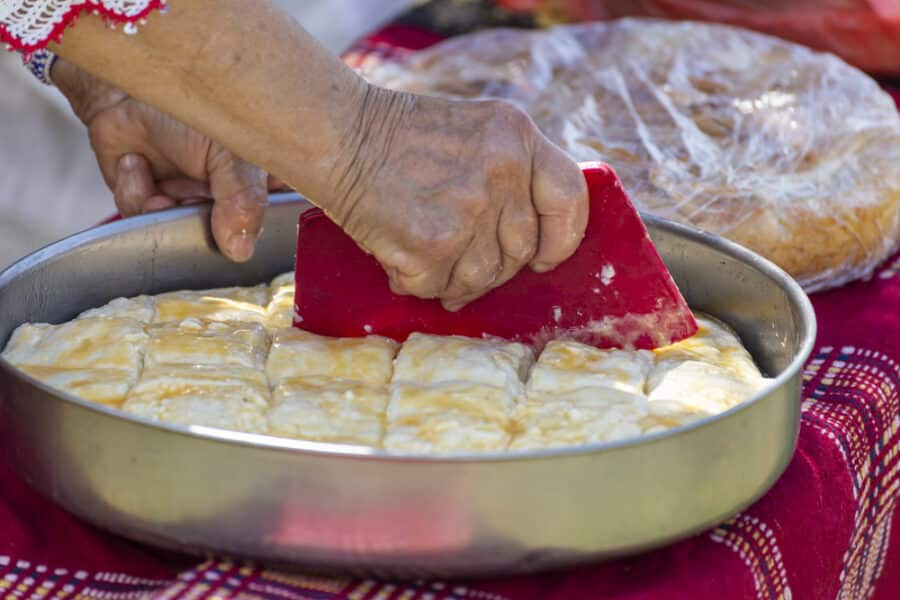
- Bulgarian Shopska Salad
- Bob Chorba
- Meatballs – cooked in all manner of ways
- Banitsa
Bulgarian food prices are much more reasonable than those of some of the more heavily visited Western European nations. They are also very filling, so you could easily skip dinner after a big lunch. Bulgaria doesn’t disappoint whether you’re a meat lover or a vegetarian – though many dishes contain dairy products, vegans are warned.
3. Friendly People In Bulgaria
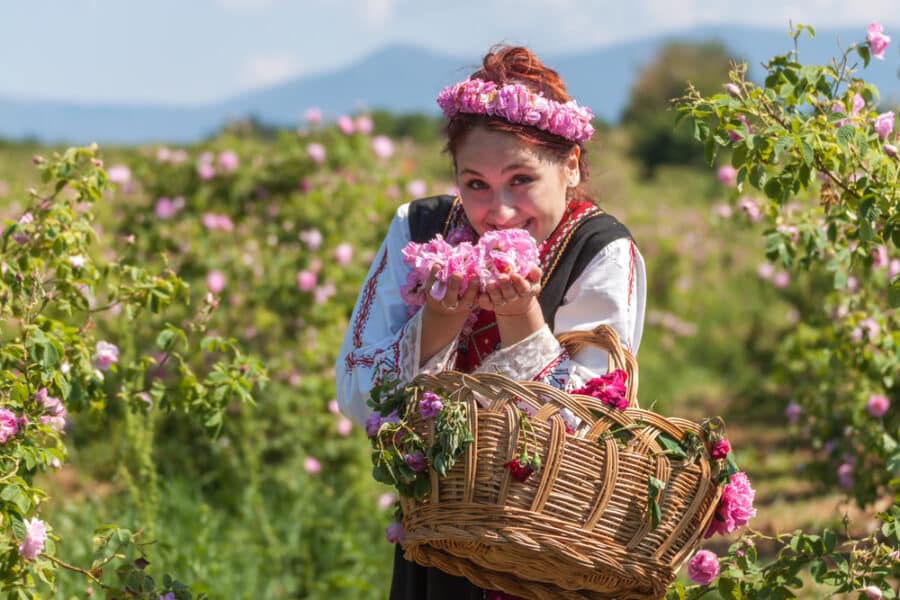
Sure, you may not find as many people capable of communicating in English, and menus might be more challenging to read (I used Google Translate a lot!), but it is all well worth the effort.
After living in Croatia for almost a decade, I love to leave to have new experiences abroad. One of the more refreshing experiences on my last two travels to Bulgaria was just how much more friendly Bulgarians are in the tourism space than Croatians. Hotel staff were always smiling; servers were always asking if we wanted more to eat or drink – with a smile.
Everywhere we went, we felt welcome and came across good-hearted people who wanted to help, even if they did not speak English. For example, in Veliko Tarnovo, we left the lights on in the hire car overnight, waiting for a dead battery to come in the morning. We returned and asked the hotel for help after we had checked out and left – but the English-speaking staff had left, and the two cleaning ladies did not speak English.
Luckily for us, they understood some of our Croatian, and they spent 30 minutes calling people in their contact list to see who could come to help us – on a Sunday morning, no less. A man on the street also flagged down cars and asked who had jumper leads.
It really struck me how they wanted to help and refused all our offers to take money once we had the issue sorted – we did manage to get them to agree in the end, luckily.
4. How Safe Bulgaria Is
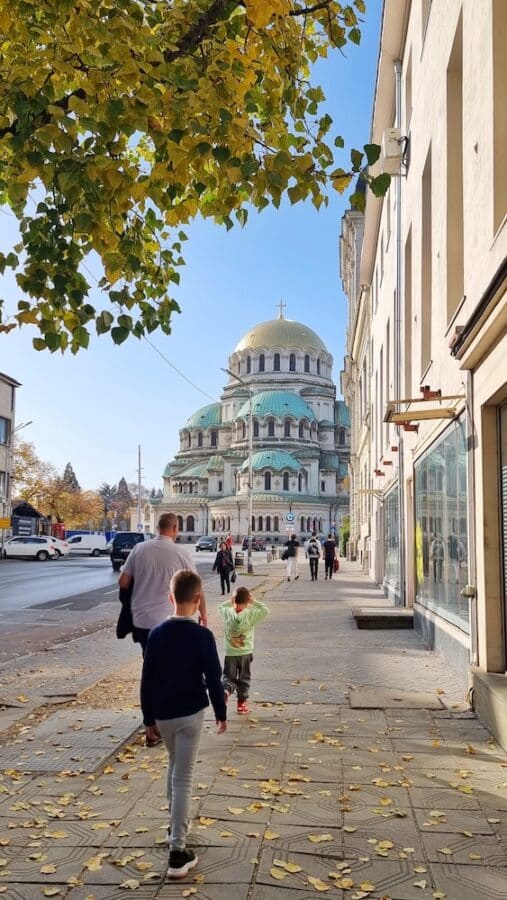
The best of Bulgaria is waiting to be explored, though how safe is Bulgaria, you may be asking yourself.
Totally safe.
I wandered about Sofia day and night, and I did not feel unsafe alone at any time. While we were traveling as a family, we never worried about the car overnight; we just took standard precautions like parking in parking garages or a designated parking space, not in alleyways, and never left valuables in sight.
In Bulgaria, pickpocketing and tourist scams are just as common as in other places in Europe. Do not fall prey to someone handing you a baby or trying to distract you.
While on the Metro, I was on high alert with the children, but after 10 minutes, I realized that everyone was reading a book and staring at the phone, and there were no shady characters looking to commit a crime, and I relaxed.
Brands We Use And Trust
5. Ancient Sites
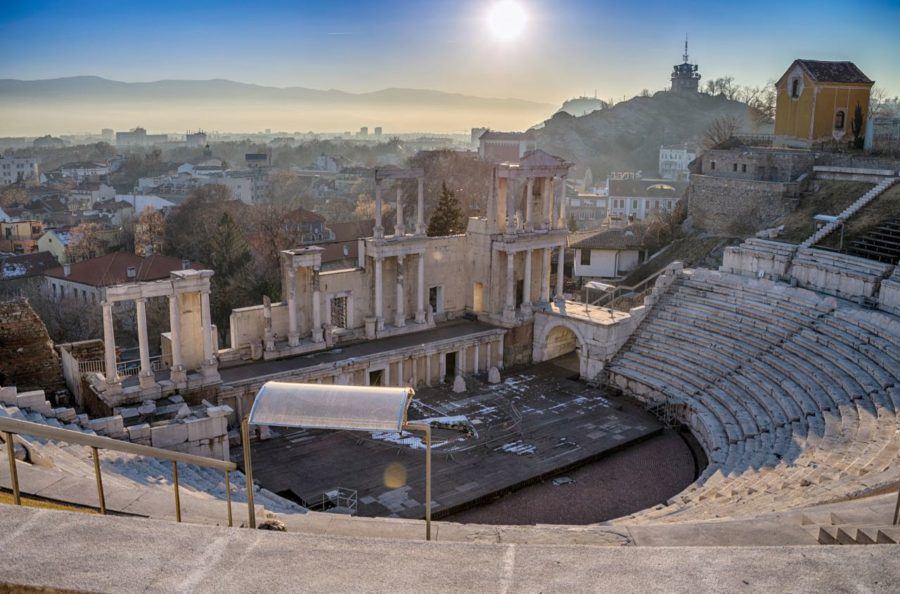
Without question, the best places to visit Bulgaria are the ancient sites; the problem is that there are just way too many of them to choose from. There are far too many sites to list in this one guide when you travel in Bulgaria – but maybe one day, I’ll do a separate post focusing on each city in Bulgaria.
To get you started, here are just a few of my favorite ancient sites in Bulgaria:
- Hisarya Complex, Hisarya: The oldest remains date back to the 4th century BC
- St. George Rotunda, Sofia: Built in the early 4th century as Roman baths, it later turned into a church
- Amphitheatre, Plovdiv: One of the world’s best-preserved ancient Roman theatres, located in the city center of modern Plovdiv
- Ancient Stadium of Philippopolis, Plovdiv: Ancient Roman stadium of Philippopolis was built in the 2nd century AD to seat 30,000 spectators
- Basilica Mosaics, Plovdiv: Known as the Great Basilica from the ancient city of Philippopolis in Plovdiv. It was built in the mid-4th century AD and is the largest late antique early-Christian church discovered in Bulgaria and one of the largest in the Balkans
- Tsarevets, Veliko Tarnovo: 206 meters above sea level; Tsarevets was a medieval stronghold dating to the 12th century
- Serdica Archaeological Complex, Sofia: Discovered during the construction of Sofia’s metro system, these Roman ruins date to the 1st-6th century
- Thracian Tombs: Not all tourist spots in Bulgaria are easy to find – trust me. My boys and I spent a whole day driving the countryside, looking for several Thracian tombs. Several we found along our travels we enjoyed learning about and exploring. Thracian Temple Complex, Starosel, Thracian Tomb of Kazanlak Tomb, Sveshtari Tomb (UNESCO), Tomb of Seuthes
6. Bulgarian Wine
A huge shock to me on my Bulgarian travels was just how many wines Bulgaria produces – how many vineyards there are and how yummy the wines are—especially the rosé wines. We’ve taken a couple of small wine-tasting classes in Bulgaria and think that a trip back to Bulgaria to explore the wines is on the cards.
During our tasting classes, we learned all about Bulgarians’ very long history of winemaking. The winemaking tradition has developed and continues to develop into a very serious industry In Bulgaria. The interest in making excellent wines in Bulgaria also expanded to many expats. For example, we drank (and packed some to bring home) bottles of a Sauvignon Blanc made by a local and a New Zealander.
The history of winemaking goes back to the times of Romans and Thracians. We know this to be true thanks to many ancient sites with winemaking depictions in mosaics, pottery, and paintings across Bulgaria. If you want to explore Bulgaria with a focus on wine, then you need to look at the five winemaking areas.
- The Thracian Valley – Southern: Plovdiv, Asenovgrad, and Haskovo
- The Struma Valley – Southwestern: Melnik
- The Danubian Plain – Northern: Pleven, Vidin, and Ruse and Pleven
- The Black Sea Coast – Eastern: Varna, Preslav, Pomorie, and Shumen
- The Valley of Roses – Sub-Balkan: Kazanluk
7. Bulgaria Is Perfect For A Road Trip
Are you still wondering, “Why visit Bulgaria”?. To see everything there’s to see. The best way to do that is to take a road trip to Bulgaria. We’ve made road trips in a dozen countries because we love to travel to the beat of our own drum. Stop when we want. Go when we want.
Driving the week in Bulgaria, we had an outstanding experience. Most roads between towns and cities are motorways, i.e., dual carriageways with emergency lanes. There are currently around 100 kilometers of these types of roads, with more construction.
The A1 between Burgas and Sofia and the A4 between Chirpan and the border with Turkey are the two that are fully complete, and we had zero problems with either. The roads are much less well-maintained when driving through the small towns and villages. That said, all we had to do was slow down a little and watch out for potholes. Easy.
Bulgaria is ideal for a road trip, especially if you stay on the highways/main roads and you do not speed. There are speed cameras everywhere!
We booked with Discover Cars and highly recommended them. We paid 200 euros for a 7-seater luxury car for five days, but we could have spent much less on a smaller vehicle.
Once you’ve got your hire car, be sure to pay for a vignette to use the roads – this is not optional, and the fines are very high if you do not have one.
8. Transport In Bulgaria Is Easy – Even As A Tourist
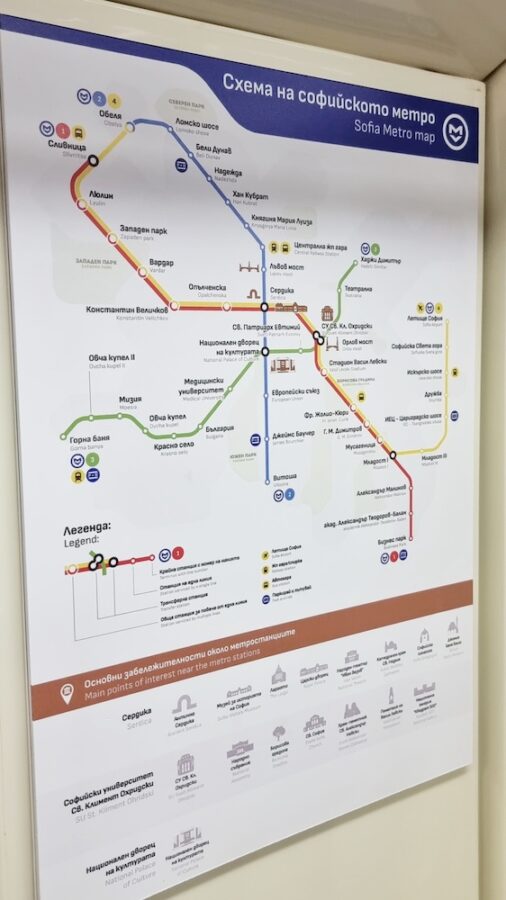
If you are not into driving yourself, never fear; transport in Bulgaria is easy – and oh-so-cheap. Taxis, the Metro, and intercity buses are inexpensive; however, these methods are far slower, so you’ll need to have a good plan in place.
We took a taxi from Sofia Airport to our accommodation; after we returned the hire car, the line was huge. We felt discouraged that we had not booked a private transfer like usual. However, the disappointment didn’t last long. The taxi line moved fast; cab after cab came to pick up travelers. No one line-jumped, and the queue moved cordially – the ride cost was 10 euros for the 15-minute drive to our hotel in Sofia.
The kids wanted to try the Metro in Sofia, and I can say that the experience is top-notch. Safe, clean, and on time! We rode the Metro to several locations, costing just 2 euros each for the day – and my youngest son rode for free!
9. Bulgaria Beaches
Along the 378 kilometers of the Black Sea coastline in Bulgaria, magical towns and golden sun-kissed beaches like Sozopol, Golden Sands, or Sunny Beach are to be found.
- Saxa Beach In Burgas
- Town Beach In Sozopol
- Bolata Beach In Kaliakra Cape
- Varna – Golden Sands
- Balchik’s Central Beach
- Nesebar & Sunny Beach
- Irakli Beach
- Sinemorets Beaches
- Karadere Beach
- Silistar Beach
10. Communism & Soviet-Era Statues
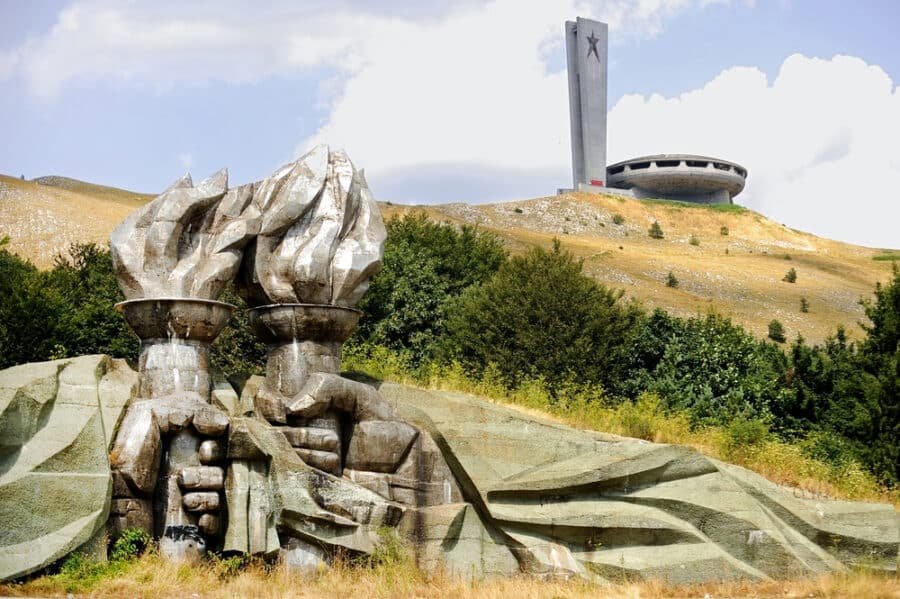
It’s a little quirky to list, I know. But when you grow up in a place far away from Communism and the Soviet Union, you find this part of Bulgarian history fascinating.
Three places to stop are:
- The Buzludzha Monument opened in 1981, a citizen-funded structure commemorating the Bulgarian socialist movement. Since the democratizing of Bulgaria, however, it’s now been abandoned for decades. So, it’s easy to see why a place loaded with such heavy Bulgarian history was chosen as the site for a national monument afterward.
- Founders of the Bulgarian State Monument: Often referred to more simply as the Shumen Monument, the Monument to 1,300 Years of Bulgaria is a huge monument located on a plateau above Shumen’s town. It was constructed in 1981 to celebrate and commemorate the First Bulgarian Empire’s 1,300th anniversary.
- Socialist Art Museum: Displaying works of art from the period of Socialist rule in Bulgaria (1944-1989), this museum is definitely worth a short visit. It is home to an extensive sculpture garden featuring at least 70 works throughout the park grounds, including the sizeable five-pointed star that once crowned the former Party House. It’s a great place to escape the city for a quiet art history walk.
11. Bulgaria Is A Great Place To Go Skiing
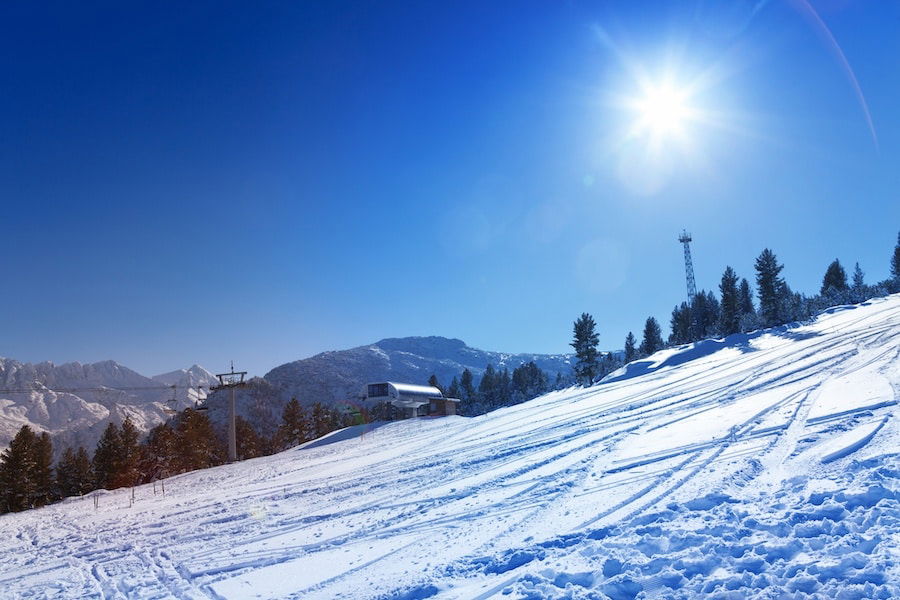
A one-and-a-half-hour drive south of Sofia, heading towards the Bulgarian-Greek border along the A3, you’ll find Bansko, located at the foothills of the Pirin mountains. Here at the Bansko ski resort (one of the best winter resorts in Bulgaria), you can spend the day at the ski run or hit the snowboarding track.
Bansko is a typical Slavic village with ancient roots and is home to incredible traditions. Nestled in the Razlog Valley, it provides an abundant water reserve flow from the Mesta River’s many tributaries and the pristine glacial lakes.
Because of the location, you can also find plentiful options to enjoy the many hot springs and day spas in Bansko and the surrounding area.
12. Bulgaria Is Perfect For A Weekend Break
Traveling to Bulgaria could last months; there is so much to see. There are a few ways to travel around Bulgaria that could take just a few days. Here are a few different Bulgaria itineraries:
Three days: Fly into Sofia and drive to Veliko Tarnovo. While there, visit Tryavna and Apriltsi.
Five days: Start in Sofia, make your way to Veliko Tarnovo (or Tryavna, Apriltsi), spend 1-2 days there, Go to Rila (or Melnik), and spend 1-2 days visiting those towns.
Seven days: Sofia to Veliko Tarnovo for 1-2 days. Drive to the Black Sea, the town of Balchik, and spend a few days there before driving back inland. Go to Rila (Melnik) or back to Sofia.
13. Bulgaria Is The Land Of Roses

Bulgaria is famous for its roses. On my last trip, my guides all proudly exclaimed that Bulgaria produces around 80% of the world’s production of rose oil. The Bulgarian “attar” of roses is a significant component in the perfumery business across the globe.
One Bulgarian fun fact is that Bulgarian rose oil is used in the space industry as a greasing component in space equipment due to its resistance to temperature changes.
Rose Festival
The Rose Festival is held in Kazanlak, part of the Rose Valley, and is held annually during the first weekend in June. The festival was first celebrated in 1903; since then, it has been kept going by generations of enterprising people from the valley. Nowadays, this is one of the Bulgaria festivals that has become an international event visited by thousands of locals and tourists.
14. Hiking Tourism In Bulgaria Is World-Class
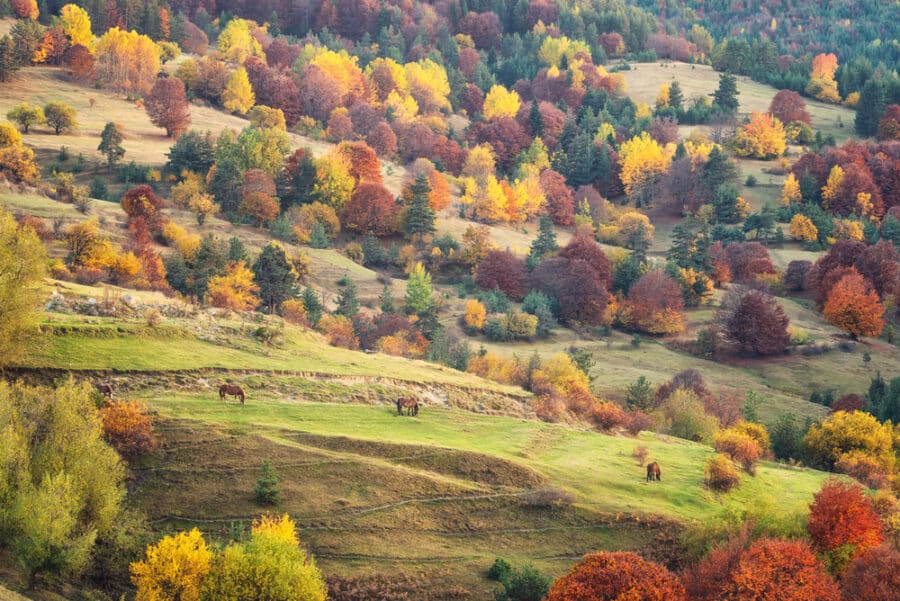
One of the most popular activities and the best thing to do in Bulgaria is to go hiking. The country has stunning, gorgeous nature to explore and outdoor activities, and hiking is among the most rewarding.
Hiking in Bulgaria encompasses discovering jaw-dropping scenarios, expansive landscapes, impressive mountains, and a solid network of hiking trails for all levels, some of them very famous, such as the day hikes in the Rila National Park (Seven Rila Lakes and Musala Peak) as well as the beautiful Sinanishko Lake in Pirin.
If you’re an outdoor enthusiast getting ready to discover the walking paths in Bulgaria, here, you will find detailed information to explore the most beautiful gems in the country. For organization purposes, the guide is divided according to the four remarkable mountains of Rila, Pirin, Vitosha, and Rhodope – choose your trail and enjoy!
- Rila National Park
- Musala Peak
- Seven Rila Lakes
- Pirin National Park
- Sinanishko Lake
- Mount Vihren
- Popovo Lake
- Vitosha Natural Park
- Cherni Vrah
- Boyana Waterfall
- Dragalevtsi Monastery
- Rhodope Mountains
- Golyam Perelik
- Orpheus’ Hills
- Devil’s Path Hiking Trail And Trigrad Gorge
15. Natural Landscapes
Bulgaria is about more than beaches, although they’re pretty impressive in their own right. You’ll find a huge range of different flora and fauna in the country, and it’s a fantastic idea to head out into the countryside or mountainous areas and hike, mountain bike, or breathe in some fresh air.
You can also visit several natural parks to see some jaw-dropping natural sights, including Iskar Gorge, Seven Rila Lakes, Vitosha Mountain, Stob Pyramids, Belogradchik Rocks, and Melnik Pyramids.
Also, be sure to check out Buzludzha Mountain in the spring months when the fields are covered in fragrant lavender.
16. Bulgaria’s Amazing Traditions
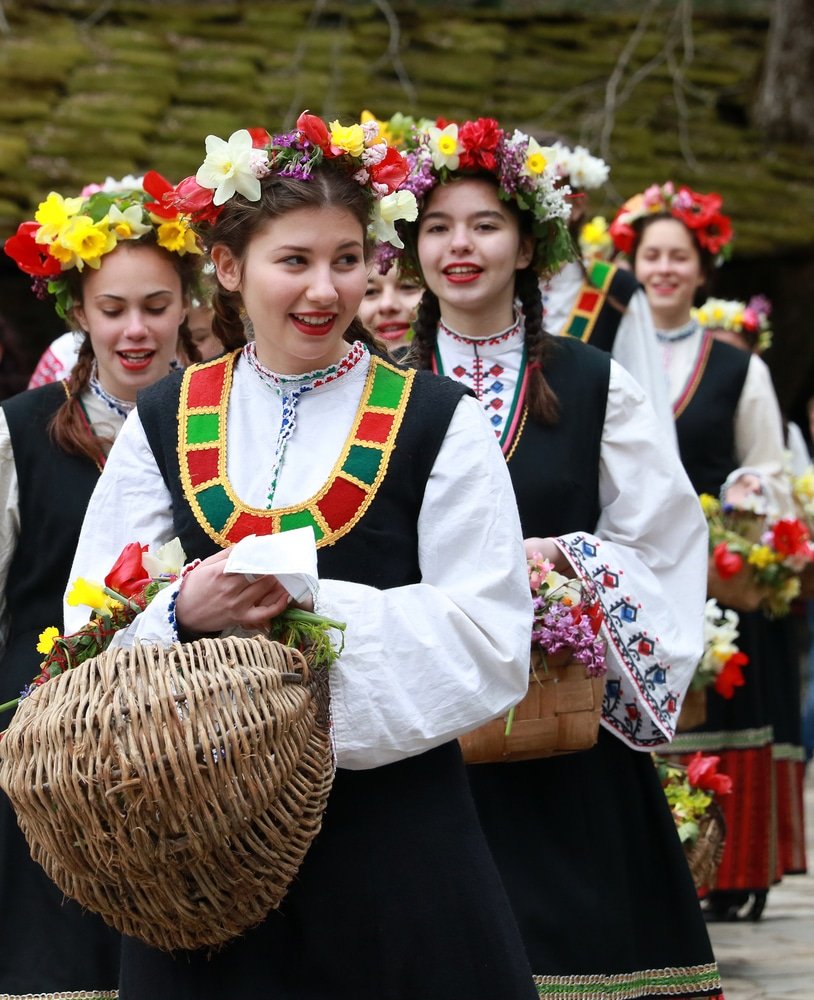
As an Orthodox country, you’ll find plenty of local traditions in Bulgaria, and they’re fantastic to learn about and experience. This is a very spiritual country; if you visit during Christmas or Easter, you’ll see plenty of decorations, festivities, and food.
Traveling around the country, you’ll find more than 120 monasteries, many of which you can easily visit. UNESCO-listed Rila Monastery is one of the most popular, and it’s undoubtedly a stunningly beautiful sight to see, dating back to the 1800s.
17. Plenty Of Travel R&R Opportunities
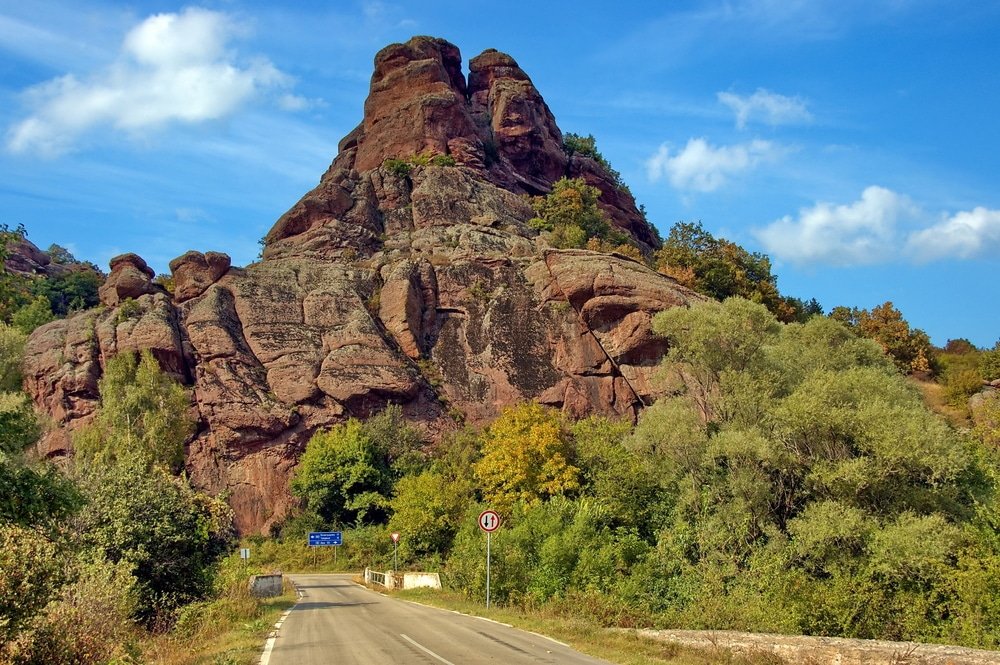
Bulgaria is home to more than 800 natural mineral springs. As such, different spa centers have opened based around those springs, offering a truly relaxing stay and multiple health benefits.
Some of the best resorts to check out include Hissar, Sapareva, Varshets, Banya, Pavel Banya, Albena, Pomorie, St. Konstantin, and Balchik.
Things To Know About Bulgaria
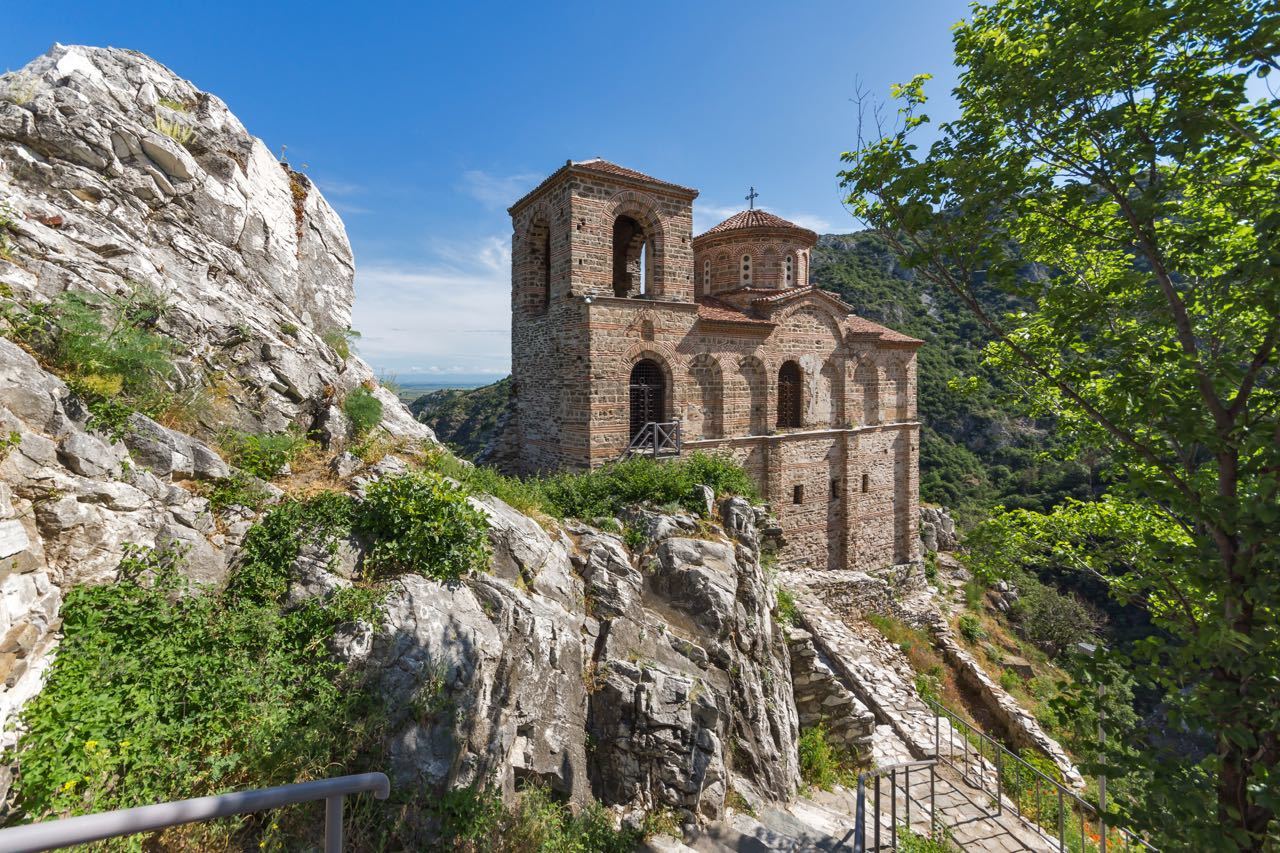
Once you have made your list of what to do in Bulgaria, you may also wish to jot down some of this information;
Bulgaria Steps into the Schengen Zone
Exciting times for Bulgaria! As of March 31st, this beautiful Balkan gem will be part of the Schengen zone. For those who’ve been part of the EU since 2007, like Bulgaria, this is a big deal.
No more showing your passport every time you cross into this country. Starting in 2024, crossing into Bulgaria will be as breezy as the Black Sea coast.
What does this mean for you?
More seamless adventures in the country’s captivating cities like Sofia and Plovdiv, easier access to its sunny beaches, and uninterrupted journeys through its picturesque countryside. Bulgaria joining the Schengen area opens up new possibilities for travelers and locals alike, simplifying travel and encouraging more exploration of its rich culture, history, and natural beauty.
Best Time To Visit Bulgaria
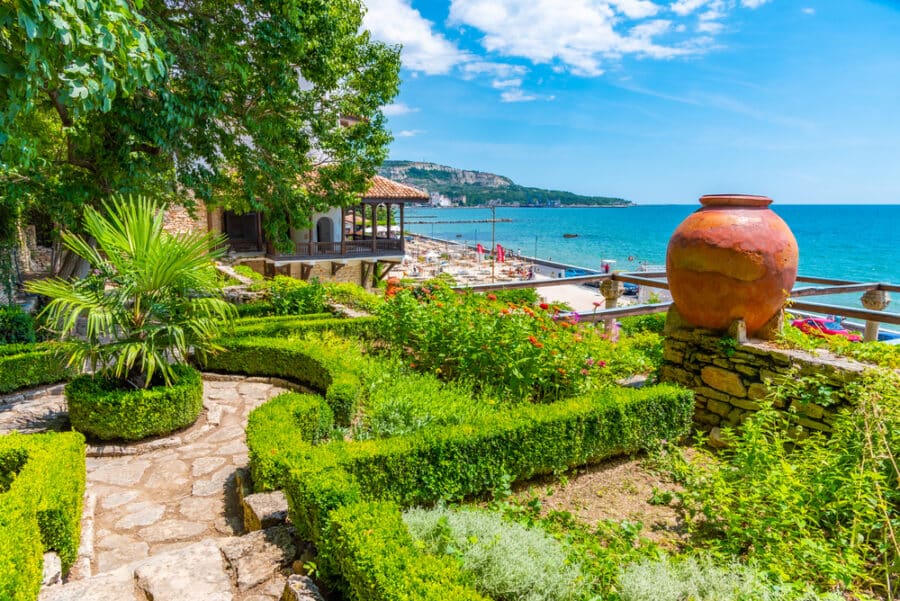
There’s never a wrong time to visit Bulgaria. Even in the dead of winter, between November and March, the Balkan mountains have some of the best skiing in Europe, and many come specifically for that.
We prefer the cooler spring weather while hiking, so March through April is an excellent time. There aren’t as many tourists around at this time, and you still get that fresh mountain air.
The peak season for tourism in Bulgaria is between May and September, with July and August being the hottest and best for beachside shenanigans along the Black Sea.
There are things to do in Bulgaria in July, September, December, and April.
Many people get excited about Rose Harvest, which lasts 20 days from late May to the middle of June. However, as stated, there is never a wrong time to visit Bulgaria.
What To Wear In Bulgaria
Regarding the obvious question of “what to pack for Bulgaria,” I can only say dress for the weather. This is so easy. Bulgaria is a very laid-back place – even in the big cities, people dress casually. Hello, travel jacket. And, also pack for your activities, and a good pair of comfortable travel shoes.
Start In Sofia, The Capital Of Bulgaria
If you arrive by plane, hire a car, or take an airport taxi, it is only a 20-minute drive to Sofia’s city center. Alternatively, a train service takes just under half an hour, offering a convenient way to travel across the city in Bulgaria and explore its beauty. For others looking to save even more money, traveling by bus is the other option.
There’s a lot to see and appreciate in and around the city center, and it is best experienced on foot. However, traveling the subway is also an option and an exciting experience in itself. The metro and train services run frequently; however, there is a lack of signage in the metro/train stations to guide you to the right platform.
If you have any questions regarding traveling to Bulgaria (or the Balkans), do not hesitate to reach out, and we will see if we can help. If you’re looking for more suggestions for what to see in Bulgaria, we have many more tips below!
Move This Adventure To Your Inbox & Get An Instant Freebie

No spam. Unsubscribe at any time.
Reasons To Visit Bulgaria FAQs
Is Bulgaria worth visiting?
A: Yes, Bulgaria is definitely worth visiting. It offers a unique blend of history, natural beauty, and vibrant culture that appeals to a wide range of travelers.
Why should I go to Bulgaria?
There are many reasons to visit Bulgaria. It is a country in Europe that has a rich historical heritage, stunning mountain ranges, beautiful beaches along the Black Sea coast, and charming towns and villages. It is also a good option for budget travelers as Bulgaria is one of the cheapest countries in Europe.
What are some places to visit in Bulgaria?
Bulgaria has plenty of places to visit. Some popular destinations include Sofia, the capital of Bulgaria, the ancient city of Plovdiv, the Rila Monastery, Bansko for winter sports, the picturesque town of Veliko Tarnovo, and the stunning Seven Rila Lakes.
Is Bulgaria safe to visit?
Yes, Bulgaria is generally a safe place to visit. Like any other destination, it’s always important to take normal precautions and be aware of your surroundings.
How to get to Bulgaria?
There are several ways to get to Bulgaria. You can fly into Sofia Airport, which is the main international airport in Bulgaria. There are also direct flights to other cities like Varna and Burgas. If you are already in Europe, you can also consider traveling by train or bus.
What is the best time to visit Bulgaria?
The best time to visit Bulgaria depends on your preferences. The summer months from June to August are ideal for enjoying the beaches and outdoor activities. The winter months from December to February are perfect for skiing in the mountain resorts. Spring and autumn offer milder weather and are great for exploring cities and cultural sites.
What is the highest mountain in Bulgaria?
The highest mountain in Bulgaria is Mount Musala, which stands at 2,925 meters (9,596 feet) above sea level. It is part of the Rila mountain range and is a popular destination for hikers and nature lovers.
Are the people of Bulgaria friendly?
Yes, the people of Bulgaria are known for their warm hospitality and friendliness. Visitors often comment on how welcoming and helpful the locals are.
What are some interesting facts about Bulgaria?
Bulgaria is home to the oldest golden treasure in the world, the Varna Necropolis. It is also the birthplace of the Cyrillic alphabet. Bulgaria and Romania are the only countries whose names end in “-ia” in Europe. The country has a rich history dating back to ancient times and was once the capital of the Second Bulgarian Empire.
Do I need a visa to visit Bulgaria?
It depends on your nationality. Citizens of some countries may enter Bulgaria visa-free for a certain period, while others may need to apply for a visa before their trip. Check the Bulgarian embassy or consulate website for specific visa requirements.
What is the currency used in Bulgaria?
Bulgaria’s currency is the Bulgarian Lev (BGN). It’s recommended to exchange your money at official exchange offices or use ATMs to withdraw local currency when you travel in Bulgaria to ensure a smooth journey.
Is English widely spoken in Bulgaria?
On my first visit to Bulgaria, I realized quickly that English is not as widely spoken as in some other European countries. Still, you can usually find English speakers in major cities, tourist areas, and establishments. Learning a few basic Bulgarian phrases can be helpful, especially in rural areas.
Is there any Bulgarian cultural etiquette I should be aware of?
When on a trip in Bulgaria, it’s essential to show respect for local customs and traditions. Greeting with a handshake is common, and removing your shoes when entering someone’s home may be expected. It’s also polite to try some traditional Bulgarian dishes when invited.
Can I drink tap water in Bulgaria?
While tap water in Bulgaria is generally safe to drink in major cities and tourist areas, sticking to bottled water is safer, especially in rural regions or for those with a sensitive stomach.
What are some popular Bulgarian dishes I should try?
Bulgarian cuisine is delicious! Don’t miss trying dishes like banitsa (cheese-filled pastry), Shopska salad, kebapche (grilled meat), kavarma (stew), and the famous Bulgarian yogurt.
Now that you know how great the Eastern European country of Bulgaria is and have more of an idea of the places to go in Bulgaria, we wish you many happy travels.

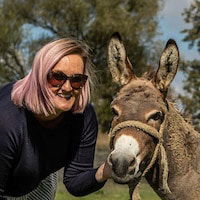


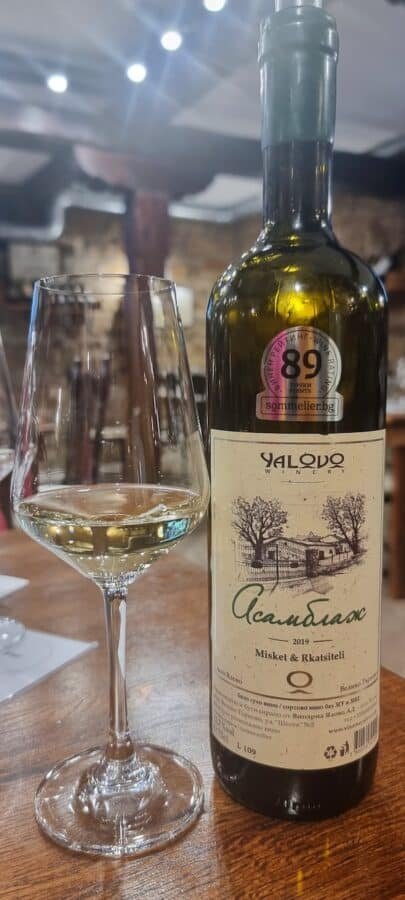
Hello, We are Tony and Theresa and we are two months into an 18 month journey of exploring Europe. After 45 days in the schengen we have come to Romania for one month (the city of Sibiu) because as you know summer is the most expensive time to visit anywhere. Also, we have heard wonderful things about Romania. Our current strategy is to spend 1 month in a location and do our best to live like a local; we are renting Airbnbs. This is the most economic way to accomplish our plans also. I just came across your website as I was exploring whether we should go to Bulgaria next. thank you for the well written article on Bulgaria. Since we have to spend 1/2 our time outside of the Schengen, I was wondering if you could give some advice to us as to where would be best. We are in our mid 60s and we prefer midsize cities and smaller that are located near mountains for hiking. Don’t let our age cause you to recommend easy hiking, we are seasoned hikers that are in excellent shape, we just finished hiking the Picos de Europa in Spain, the Dolomites in Italy and the region of Jungfrau in Switzerland. We are not afraid of difficult if it gets us to places that are spectacular. If we are in a town that has good public transportation we do not rent a car; we walk or take the bus/tram. I thank your for taking the time to guide us. Again, thank you for you website, I will explore it more.
Oh BTW, we have already booked 2 weeks in Dobrota Montenegro (outside of Kotor) in late September/early October. One of our sons is coming over to visit with his family. But we are wide open to stay longer in Montenegro upon your suggestion.
Thank you,
Tony Slavin